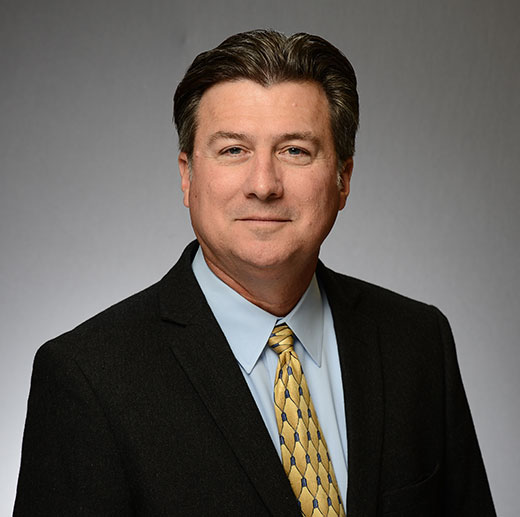What You Should and Should Not Say to a Workers’ Comp Adjuster

Contents
Talking with a Workers’ Comp Adjuster Can be Tricky
If you’ve been injured on the job, at some point in the workers’ compensation process, you will likely need to talk to an insurance adjuster. This conversation is extremely important, as the adjuster will take notes from your discussion, along with the other evidence you’ve submitted, and determine how much the insurance company will pay for your injuries.
If you say the wrong thing or the adjuster finds a way to poke holes in your story, the value of your claim could be significantly reduced, or your claim may be thrown out entirely.
Simply put, it’s vitally important to know what you should and should not say to a workers’ comp adjuster.
The best way to make sure your rights are protected and that you have the best shot at pursuing the benefits you deserve is to hire a skilled workers’ compensation attorney. R. Alan Cleveland, LLC is dedicated to helping injured people seek success with their workers’ comp cases. Our experienced workers’ comp attorneys are ready to guide you through each step of the process.
Whether you’re filing your initial claim or appealing a denied claim, we’ll fight to pursue every dollar you’re entitled to. Schedule your free initial consultation today by calling us or visiting our contact page. We serve clients in Norcross, Gwinnett County, and across the Atlanta metro area.
What You Should Say to a Workers’ Comp Adjuster in Georgia
You need to be very careful about what you say about your workplace injury to your workers’ comp adjuster. Here are the things you should tell them in your conversation:
- Stick to the basic facts. It’s tempting to go into elaborate detail about what led up to your workplace accident. In reality, the more you say, the more likely it is that you’ll get tripped up over some detail or fact that may jeopardize your claim. Even if you make a mistake accidentally, the insurance company will jump on that misstep as an opportunity to minimize or deny your claim. When you’re recounting how your injury occurred, stick to the basics: Where the injury occurred in your workplace, the time and date of the injury, what type of accident led to your injury, and which parts of your body were injured.
- Be as inclusive as possible when describing your injuries. If you leave out an injury in your statement, or you don’t fully describe its effects, there’s a good chance the insurance company will not pay for your treatment for that injury. For example, neck injuries often cause pain in your shoulders or arms as well. In this case, when describing the neck injury, you should also describe any pain you might feel in your shoulders and arms.
- Answer any questions about pre-existing conditions truthfully. Some injured workers try to hide pre-existing conditions from the workers’ comp adjuster because they’re worried that it might reduce the value of their claim. While pre-existing conditions are not covered by workers’ compensation, any injuries that aggravate a pre-existing condition should be covered. In any case, the adjuster is almost certain to find out about your pre-existing condition when they receive your medical records. Trying to hide a pre-existing condition gives insurance companies any easy out to deny your claim.
- Be very specific about how your injury occurred. While you don’t want to get too expansive in your discussion with the insurance adjuster, you do want to provide as much detail as possible about how the injury occurred. Just make sure that you stay consistent when you recount how the accident happened.
- If you haven’t seen a doctor already, ask for a panel of physicians to review your case. A panel of physicians is more likely to give you the outcome you want for your claim than is a single doctor chosen by the insurance company.
What You Should Not Say to a Workers’ Compensation Adjuster in GA
Being careful about what you do not say to a workers’ comp adjuster is just as important as watching what you do say. Here are some things you should not say when speaking to a workers’ comp adjuster:
- Do not agree to being recorded. It’s not legally required that your discussion with the adjuster be recorded. When they ask if you agree to be recorded, you should politely decline. Being recorded makes it easier for insurance companies to find issues with your claim, even if those issues are accidental.
- Do not answer any questions about your family or financial situation. These questions have no bearing on your claim. If the adjuster asks, they’re likely trying to find out if they can get you to accept a quick, lowball settlement. Don’t fall for this trap.
- Do not get conversational with the adjuster. You don’t need to be rude, but bear in mind that the insurance company that employs the adjuster is motivated to pay as little on your claim as possible. Stick to the facts, and don’t let the adjuster sidetrack you.
- Do not agree to any settlement or sign any documents. Even if the settlement seems generous, you may be entitled to more than what the adjuster initially offers. Have a workers’ compensation attorney review any documents or settlement offers you receive before signing them.
Get Help from Skilled Workers’ Compensation Lawyers in Georgia
The experienced workers’ compensation attorneys at R. Alan Cleveland, LLC are committed to protecting people who have been hurt on the job however we can. Our firm is ready to help you no matter where you are in the workers’ compensation claims process. We can help you file your initial claim, assist with an appeal after a denied claim, and get you the medical care you need.
You’ll get individual attention from an experienced workers’ compensation lawyer at R. Alan Cleveland, LLC. To schedule your free initial consultation, call us today or visit our contact page.

An Athens resident Alan Cleveland grew up in Rockdale County. As a founding partner of the personal injury law firm of R. Alan Cleveland, LLC he proudly serves his community and provides skilled representation to injury victims and their families all around Georgia. Alan earned his undergraduate degree from the University of Georgia and went on to graduate, summa cum laude, from Atlanta’s John Marshall Law School. He is also a graduate of Gerry Spence’s renowned Trial Lawyers College (TLC) in Wyoming. In his free time, Alan frequently speaks at continuing legal education seminars. He also volunteered as a youth baseball coach and assists with Georgia’s high school moot court competition held annually. Alan serves as a Trustee of Historic Athens and is a member of the Development Authority of the Unified Government of Athens-Clarke County.
